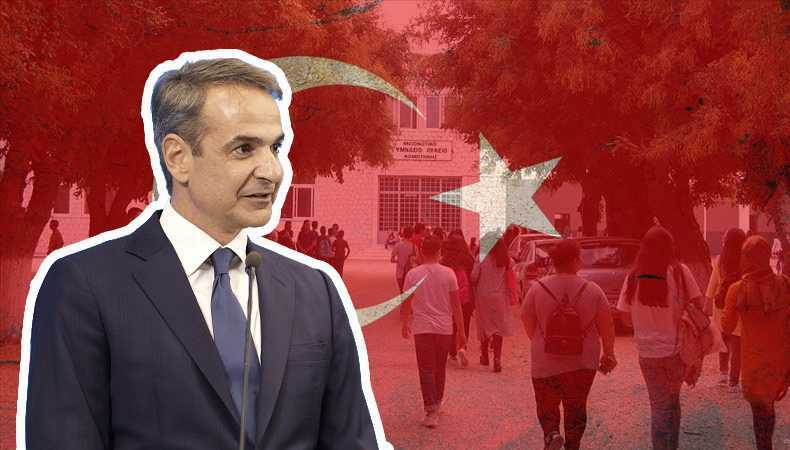Greece Neglects Educational Rights of Minority Ethnic Turk Population

In the region of Western Thrace, Greece, the minority Turk community finds itself grappling with neglect and an alarming lack of attention towards their educational rights. Muslims in Thrace make up around 32 percent of the province’s population and consist of ethnic Turks, Roma and Bulgarian-speaking Pomaks.
Despite the historical significance of the Lausanne Peace Treaty, which recognized the minority’s existence and guaranteed their fundamental rights, the community continues to face challenges in accessing quality education and preserving their cultural identity.
The Lausanne Peace Treaty, signed in 1923, was a pivotal moment in history that aimed to establish peace and define the borders of modern-day Turkey and Greece. As part of the treaty, the rights of the minority Turk community in Western Thrace were acknowledged and protected. However, over the years, the implementation of these rights has been inconsistent, resulting in significant disparities in education and cultural preservation.
Human rights activists and advocates have been at the forefront of raising awareness about the plight of the minority Turks in Western Thrace. They argue that the Greek government must uphold its commitments under the Lausanne Treaty and take necessary measures to address the neglect faced by the Turk community. The activists have been highlighting the urgent need for equitable access to education and culturally sensitive curricula that recognize and celebrate the Turk community’s heritage.
In 2023, several human rights organizations stepped up their efforts to bring attention to the educational rights crisis in Western Thrace. Campaigns, petitions, and demonstrations have been organized both within Greece and on the international stage, urging the Greek government to act promptly. Social media has played a crucial role in amplifying the voices of the minority Turk community and garnering support from people worldwide.
As a response to mounting pressure from human rights activists and advocates, the Greek government has begun to acknowledge the need for reform. In a recent address to the nation, Prime Minister Kyriakos Mitsotakis stated that steps would be taken to improve educational opportunities for the Turk minority and ensure their cultural heritage is preserved and celebrated.
But Huseyin Zeybek, a deputy of the SYRIZA party of Turkish origins, says both Mitsotakis and Nikos Androulakis, the leader of the social-democrat opposition party PASOK, ignored the minority in their recent visits to the Western Thrace. Zeybek believes dialogue with Ankara will resolve the issues between the two countries.
In 2022, Turkish President Recep Tayyip Erdogan, on the 99th anniversary of the Lausanne Treaty, accused Athens of undermining the rights of the Muslim minority in Greece’s Thrace region. “The conditions registered in the treaty, especially the rights of the Turkish minority, have been ignored or deliberately eroded. It is not possible for our country to accept this situation, which is incompatible with good neighborly relations and loyalty to the treaty.
In light of the ongoing efforts to address the educational rights crisis faced by the minority Turk community in Western Thrace, the Lausanne Peace Treaty serves as a reminder of the historical significance of recognizing and protecting minority rights. It underscores the importance of governments fulfilling their obligations and ensuring the welfare and inclusion of all citizens, regardless of their ethnic background.
The challenges faced by the minority Turk community in Western Thrace may be longstanding, but the collective determination of human rights activists and advocates, coupled with the commitment of the Greek government to bring about positive change, offers hope for a more inclusive and equitable future. As the world watches closely, the fate of the Turk minority in Greece remains a critical test of the nation’s commitment to upholding human rights and fostering a diverse and harmonious society.




